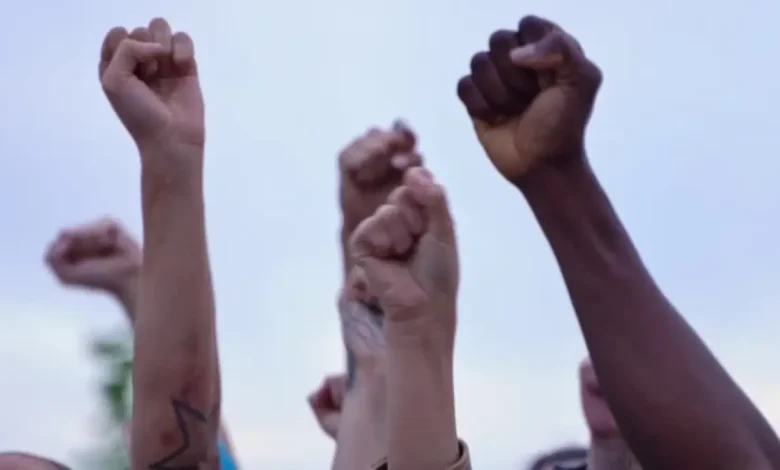Outrage as City of Tshwane Blocks Legally Approved Workers’ Protest

On 22 July 2025, a group of City of Tshwane employees found themselves at the centre of a heated dispute over workers’ rights and municipal governance. What started as a lawfully planned protest outside Tshwane House approved under South Africa’s Gatherings Act ended in frustration when city officials abruptly shut down the demonstration. This sudden intervention by municipal authorities has sparked widespread outrage, not only among the affected workers and their unions, but also among advocates for constitutional rights and transparent government.
ALSO READ: 16 Days of Water Outages in Joburg, Pretoria, and Ekurhuleni: List of Affected Areas
Workplace Grievances Fuel the Fire
At the heart of the protest lie long-standing grievances that have left municipal employees feeling both financially strained and professionally marginalised. Central to their demands is the payment of a 3.5% salary increase, originally agreed upon in 2021 but still not implemented. Workers also seek the reinstatement of 182 colleagues dismissed in the aftermath of a previous strike in 2021, and they are calling for greater accountability regarding alleged wasteful spending by the municipality. Workers point to a recent auditor-general’s report highlighting R4.5 billion in wasteful expenditure and a further R5 billion in unauthorised spending in recent years, insisting that the city has the means to honour its commitments.
Legal Permission Granted, Then Denied
The employees had taken care to follow the law, applying for and receiving official permission to stage their protest. However, as they gathered to make their voices heard, they were informed by the city’s head of human resources that municipal staff are subject to additional internal requirements effectively cancelling their lawful assembly at the last minute. This unexpected move left many feeling disrespected and sidelined, despite their adherence to legal procedures.
Themba Nkabinde, leader of the Concerned Tshwane Workers Forum, captured the mood: “We were not giving up. The city claims they have no money, but the auditor-general found R9 billion wasted while the city claims it has no money for workers.”
Sekete Mokobane, deputy convenor of the forum, echoed this frustration: “The city should reinstate the dismissed workers. They had to go back to the drawing board and reapply to picket.”
Union Prepares for Legal Fight
The South African Municipal Workers’ Union (SAMWU) has signalled its intention to escalate the matter. Donald Monakisi, regional secretary of SAMWU, confirmed the union’s position: “The 3.5% salary increase, owed to workers since 2021, must be honoured. The delay in payment has imposed significant financial strain on municipal workers.”
SAMWU’s legal team is now preparing for an exemption hearing, determined to secure what they see as their members’ rightful due.
Tshwane Labour Relations: A Wider Crisis
This incident is not an isolated one. Recent years have seen repeated clashes between Tshwane’s workforce and city management over wages, dismissals, and working conditions. While the municipality cites financial constraints as the reason for withheld wage increases, employees argue that mismanagement and wasteful spending are the real obstacles to a fair settlement. The auditor-general’s figures lend weight to their case, fuelling scepticism about the city’s claims of poverty.
| Issue | Workers’ Position | City’s Position |
|---|---|---|
| Salary increase | Pay the overdue 3.5% (2021 agreement) | Can’t afford due to financial constraints |
| Dismissed workers | Reinstate 182 colleagues | No official response |
| Wasteful spending | R9 billion identified by auditor-general | City claims no money |
Constitutional Rights at Stake
South Africa’s Constitution guarantees the right to peaceful protest, provided gatherings comply with the Gatherings Act. The decision to block a legally approved protest raises serious questions about respect for these constitutional protections. Experts warn that such actions risk eroding public confidence in both municipal governance and the rule of law, especially when workers have followed the correct legal channels.
CHECK OUT: Pretoria Water Outage Leaves Gauteng Residents Frustrated
Consequences for Service Delivery and Community Trust
The immediate fallout extends beyond the workforce. If tensions are not resolved, further industrial action could disrupt essential municipal services, affecting water, electricity, and waste management for many residents. Past disputes have already led to service interruptions, and ongoing unrest threatens to deepen the divide between the city and its employees and, by extension, the community they serve.
What’s Next for Tshwane?
Workers and their unions are not backing down. SAMWU is pursuing legal avenues, while employees regroup to reapply for permission to picket. The city, meanwhile, faces growing pressure to address both the immediate grievances and the underlying issues of trust and accountability. The outcome of this standoff will have implications not only for Tshwane, but for labour relations across South Africa’s municipalities.
Broader Takeaways
This episode highlights the delicate balance between municipal governance, workers’ rights, and constitutional freedoms. It underscores the importance of transparent financial management, good-faith negotiation, and respect for lawful protest. For residents, the stakes are real: service delivery depends on a motivated, fairly treated workforce, and trust in local government hinges on accountability and responsiveness.
Frequently Asked Questions
Did the workers have the right to protest?
Yes, they obtained legal permission under the Gatherings Act before the city intervened.
What are the main issues at stake?
Workers are demanding unpaid salary increases, the reinstatement of dismissed colleagues, and accountability for wasteful municipal spending.
How have unions responded?
SAMWU is preparing legal action to compel the city to honour the wage agreement.



